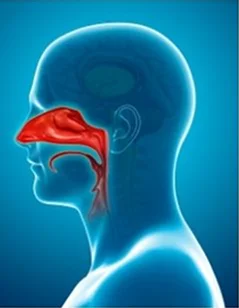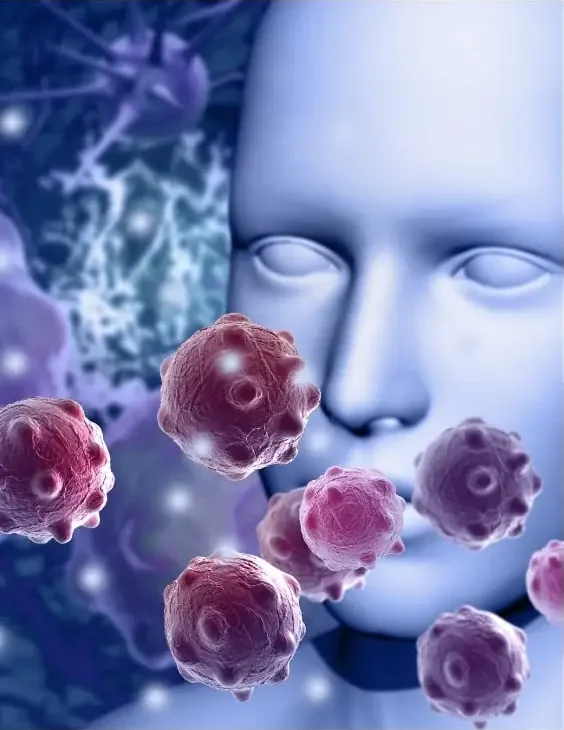Experiencing nasal congestion can be an indication of various illnesses. As it is not an exclusive symptom, it can be challenging to determine the exact cause of a stuffy nose. While it may seem like a common cold or a reaction to changes in weather or cold temperatures, it is important to identify the underlying cause of the congestion and the associated illness.
Nasal polyps can be a potential cause of nasal congestion. Although they may not be life-threatening, it is crucial to identify their presence to seek appropriate treatment. Prolonged existence of nasal polyps can result in severe respiratory problems and other associated ailments.
Also Read: 5 Signs Of A Diabetic Emergency
What is Nasal Polyp?
Nasal polyps are benign, soft growths that appear on the interior lining of the nasal passage. They typically emerge on both sides of the nose.
Due to their small size and location inside the nasal cavity, identifying nasal polyps can be difficult. It is possible to remain unaware of their presence. These growths originate from the nasal lining membrane and do not exhibit bleeding or sensitivity upon touch, thus making them challenging to detect.
Why Do They Happen?
Nasal polyps happen due to repeated infections in the nose that cause inflammation. People with allergies and asthma are more prone to developing nasal polyps. Other diseases that can develop nasal polyps are
- Cystic fibrosis
- Chronic rhinosinusitis
- Aspirin sensitivity
- Churg-Strauss syndrome
Since they can vary in size, from small pear shapes to centimeters of size, it can be hard to see them. Generally, adults of any age can get nasal polyps. Children do not get nasal polyps as much.
What are the Symptoms of Nasal Polyps?
When it comes to nasal polyps, the symptoms they cause are not specific to them alone. In fact, they usually start off without any symptoms at all. However, as they develop, the following are some of the common symptoms that may arise:
- Stuffy nose
- Headaches
- Reduced sense of smell and taste
- Coughing
When nasal polyps are accompanied by chronic sinusitis, the following symptoms may also occur:
- Facial pain around the nose
- Increased stuffiness
- Pressure around the nose and forehead
- Postnasal drip
- Snoring
- Nosebleeds
- Pain in the upper teeth
It is important to keep in mind that if you experience any of these symptoms, you should seek medical attention to determine the underlying cause and receive appropriate treatment.
How Can Nasal Polyps Be Diagnosed?
Simply doing a self-check will not suffice in identifying nasal polyps. It is crucial to have a proper medical examination conducted by a doctor. The doctor will perform a nasal-based endoscopy to examine your nose. This involves inserting a thin tube with a camera attached into your nasal passage to identify any nasal polyps.
To confirm a diagnosis of nasal polyps, your doctor may inquire about your medical history and symptoms, such as asthma, allergic reactions, or recurrent sinus infections. Nasal polyps typically develop following inflammation in the nasal passage.
When to Go to a Doctor?
If you are unsure when to seek medical attention for your symptoms, it is recommended that you visit a doctor if you experience any of the following:
- Gradual loss of taste and smell
- Difficulty breathing
- Increased snoring
If your symptoms persist for more than ten days, it is advisable to consult a doctor for proper evaluation and treatment.
Are Nasal Polyps Dangerous?
Individually, nasal polyps are not considered dangerous, but when left untreated, they can cause inconvenience to the patient and even lead to other illnesses. Therefore, it is important to seek medical attention if you experience any symptoms of nasal polyps.
- The nasal passage is responsible for producing mucus that drains the nose from dust, allergens, and other external substances. However, the growth of nasal polyps can obstruct the passage of this mucus, resulting in accumulation and blockage. This can ultimately result in infections and trouble sleeping. Seeking medical attention is crucial if you experience any symptoms of nasal polyps.
- Sleep apnea is a severe sleep disorder where individuals experience breathing difficulties during sleep. Nasal polyps can contribute to the development of sleep apnea. Increased snoring is a common symptom of a blockage in the nasal passage, preventing proper breathing through the nose. It is a serious condition that requires medical attention and evaluation. If you suspect that you may have sleep apnea, it is worth getting checked over by a healthcare professional.
- Individuals who suffer from asthma and are more susceptible to nasal polyps may experience an increase in asthma attacks due to difficulty in breathing. Seeking medical attention and treatment for nasal polyps can help manage asthma symptoms and improve overall respiratory health.
- Even individuals with no pre-existing health conditions can experience breathing difficulties and sinus infections. It is essential to take care of your respiratory health and seek medical attention if you experience any symptoms or discomfort. Regular check-ups and preventive measures can help maintain good respiratory health.
Also Read: What Is A Hypertensive Crisis?
Treatment for Nasal Polyps
Nasal polyps can be effectively treated through various medication and outpatient surgical procedures. The following are some treatment options available:
- Oral medications
- Injections
- Steroid sprays that help shrink the polyps
- Medications that can be applied to the nasal passage
- Nasal endoscopy surgery to remove the polyps
Nasal endoscopy surgery is a relatively minor procedure that only takes a few minutes and does not require overnight hospitalization. Seeking medical attention and discussing the available treatment options with a healthcare professional can help manage and improve symptoms of nasal polyps.
How Can We Prevent Nasal Polyps?
Nasal polyps cannot be prevented easily. As they are more prone to people with inflammation and sinus issues, taking care to prevent those can help.
- Practice Hygiene: Practicing hygiene can eliminate the cause of nasal infections or allergic reactions.
- Taking Care of Allergens or Triggers: When allergic to something, take precautions to avoid the trigger and enough medications to deal with them.
- Clean The Nose: One can get a nasal spray that will help in cleaning the nose. It can wash away any irritants or allergens in the passage that can lead to inflammation. One can also use lukewarm salt water rinse to clean the nose. The pharmacy can also provide a steroid nasal spray that does not need the prescription of a general physician.
- Humidifier: Using a humidifier at home can help moisten the inside of the nose and thereby decrease the chance of swelling or inflammation.
- Mask: Use a mask if you’re polluted or prone to allergies and sinus infections.
Can Nasal Polyps Come Back?
Nasal polyps are prone to recurrence, even after surgery or treatment, as they typically develop due to inflammation. To prevent their reoccurrence, individuals must stay on steroid tablets or sprays for an extended period after surgery. Seeking medical attention and following the prescribed treatment plan can help manage symptoms and reduce the risk of developing nasal polyps again.
Also Read: Reasons To Get an Air Purifier
Conclusion
Nasal polyps pose no serious threat, yet they require proper treatment and care. Maintaining good hygiene and managing asthma triggers are essential. It is crucial to adhere to the doctor's instructions diligently.








%20(1).png)
.png)
%20(1).png)


%20(1).png)




%201.png)
